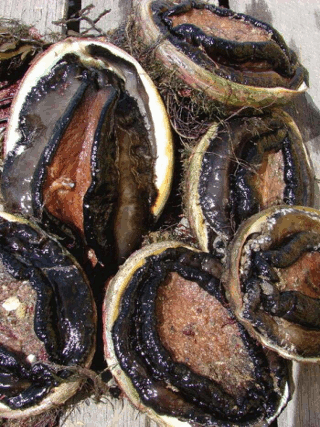Western Victorian Abalone Industry Set To Thrive
05 February 2018
Victoria's abalone industry is set to grow with the total allowable commercial catch for blacklip abalone in Victoria's west increasing by 6.8 tonnes to 70 tonnes for the 2018/19 season.
It follows a positive stock assessment and quota setting meeting last month in Port Fairy that showed increasing stock and continued recruitment.
Victoria is home to one of the world's last sustainable wild abalone fisheries, which is of considerable social and economic value, particularly to regional communities in the west.
The combination of conservative quotas, a large size limit to protect spawning stock and focussed management has improved blacklip abalone stocks to a point where sustainable harvest can be increased.
The annual stock assessment, which involves licence holders, divers, the Victorian Fisheries Authority and the Western Abalone Divers Association considers catch and effort data from the fishery, independent surveys and commercial diver observations.
The allowable catch for greenlip abalone in Victoria's western zone remains unchanged at 1.4 tonnes for 2018/19, while commercial divers collect more information on their size, abundance and distribution.
Minister for Agriculture Jaala Pulford also recently visited abalone fishers and processors in Eastern Victoria and announced that commercial abalone and rock lobster fishers would no longer be required to obtain a PrimeSafe licence, bringing Victoria into line with other states, and removing red tape and costs from the sector.
Victoria exported $162 million worth of rock lobster and abalone in 2016/17, an increase of more than 70 per cent over five years.
Quotes attributable to Minister for Agriculture Jaala Pulford
"This is terrific news for the industry, which endured the abalone virus back in 2006 and has actively managed the stock's recovery since."
"The increase in catch follows our announcement that commercial abalone fishers will no longer be required to obtain a PrimeSafe licence – reducing unnecessary red tape without affecting food safety or market access."
Quotes attributable to Western Abalone Divers Association Executive Officer Harry Peeters
"This fishery is now a shining light for responsible resource management and is the most data rich dive fishery in the world."
"Licence holders have also invested in research to re-establish breeding populations in areas wiped out by the virus, supported by the Fisheries Research and Development Corporation and Deakin University."
